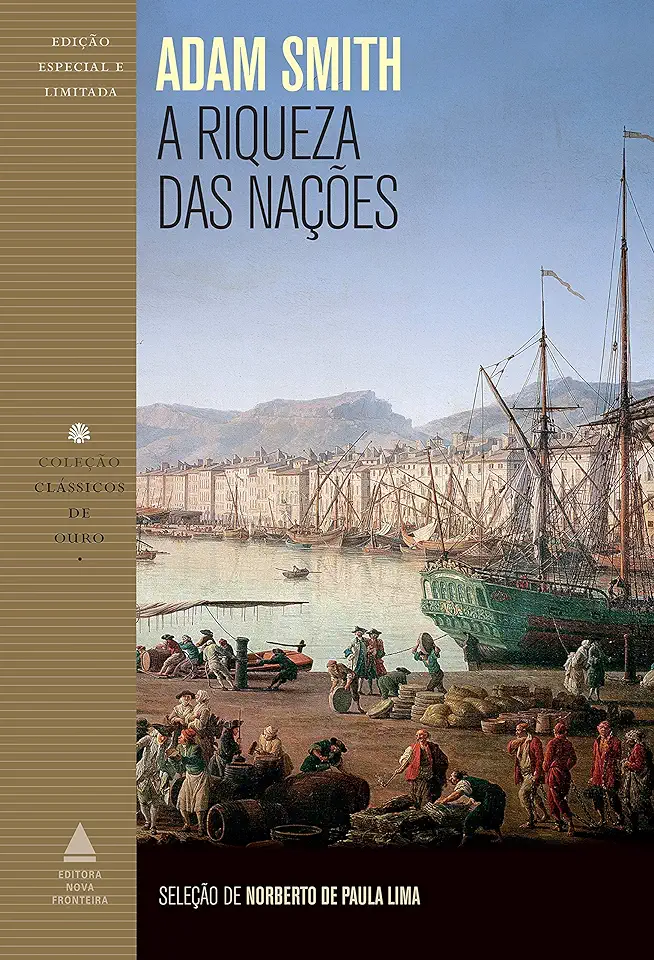
The Wealth of Nations
The Wealth of Nations: A Summary
Introduction
In his groundbreaking work, "The Wealth of Nations," Adam Smith lays the foundation for modern economic thought. Published in 1776, this seminal book revolutionized the way we understand the creation and distribution of wealth, offering profound insights into the workings of the free market and the role of government in economic prosperity.
The Division of Labor
Smith begins by examining the division of labor, arguing that it is the key to increased productivity and economic growth. He illustrates this concept through the example of a pin factory, demonstrating how specialization and cooperation can exponentially increase output. This division of labor, he asserts, is driven by the natural human propensity to barter and trade.
The Role of Capital
Smith then turns his attention to the role of capital in economic growth. He defines capital as "that part of a man's stock which he employs in cultivation, manufactures, or trade," and argues that it is essential for economic progress. Capital, he explains, allows for the accumulation of wealth and the investment in new technologies, leading to increased productivity and economic growth.
The Free Market
At the heart of Smith's economic philosophy lies the concept of the free market. He argues that the pursuit of self-interest, guided by the "invisible hand" of competition, leads to the most efficient allocation of resources and the maximization of wealth for society as a whole. Smith believed that government intervention in the economy should be minimal, as it tends to distort the natural workings of the market and hinder economic growth.
The Role of Government
While Smith advocated for a limited role for government in the economy, he did not advocate for complete laissez-faire. He recognized the importance of government in providing essential public goods, such as infrastructure, education, and national defense, which the private sector cannot efficiently provide. Smith also acknowledged the need for government regulation to prevent monopolies and protect consumers from fraud and abuse.
International Trade
Smith also delves into the realm of international trade, arguing that free trade between nations leads to mutual benefits and increased economic prosperity. He refutes the mercantilist notion that a nation's wealth is determined by its accumulation of gold and silver, instead asserting that wealth is created through productive labor and trade. Smith's insights on international trade laid the groundwork for the modern theory of comparative advantage.
Conclusion
"The Wealth of Nations" is a seminal work that has profoundly influenced economic thought and policy for over two centuries. Adam Smith's groundbreaking ideas on the division of labor, capital accumulation, the free market, and international trade continue to shape our understanding of economic growth and prosperity. This book is a must-read for anyone interested in economics, history, or the foundations of modern society.
Why You Should Read "The Wealth of Nations"
"The Wealth of Nations" is not just another economics textbook; it is a thought-provoking exploration of the fundamental principles that govern economic systems. Here are a few reasons why you should read this influential work:
Gain a deeper understanding of the economy: Smith provides a comprehensive analysis of the factors that drive economic growth and prosperity, offering insights that are still relevant today.
Challenge your economic assumptions: Smith's ideas challenge conventional wisdom and encourage readers to think critically about the role of government, the free market, and international trade.
Appreciate the historical context: "The Wealth of Nations" offers a glimpse into the economic thinking of the 18th century, providing a valuable historical perspective on the development of economic thought.
Enrich your knowledge: Reading "The Wealth of Nations" will expand your knowledge of economics and give you a deeper appreciation for the complexity of economic systems.
Enjoy the intellectual journey: Smith's writing is clear, engaging, and thought-provoking, making "The Wealth of Nations" an enjoyable read for anyone interested in economics or history.
Order Your Copy Today!
Don't miss out on the opportunity to read this classic work of economic thought. Order your copy of "The Wealth of Nations" today and embark on an intellectual journey that will challenge your assumptions and deepen your understanding of the world economy.